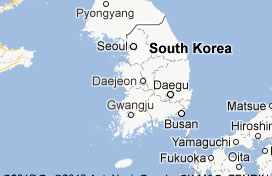
Among those indicted was a 37-year-old housewife, identified by her surname Kwon, who hired a broker in 2009 to create false British and Bulgarian passports, the prosecutors’ office in the western city of Incheon said.
Foreigner-only schools in South Korea require at least one of their students’ parents to be a foreign citizen, and Kwon used the passports to gain admission for her daughter.
She was also accused of faking a Guatemalan passport to transfer her daughter to another school.
Kwon allegedly paid about 100 million won ($91,250) for the fake documents.
Access to foreigner-only schools is seen as hugely advantageous, because English is the medium of education in them and it provides a useful stepping stone to eventual overseas study.
Students in education-obsessed South Korea begin learning English at the age of nine, and parents spend a small fortune on private cram schools to improve their fluency levels.
Those who can afford it often send their children to high schools abroad.
Some of those charged on Tuesday had secured false passports of African nations while others had travelled to Central America to obtain forged citizenship papers there, the prosecutors said.
The indictments came days before 600,000 students across the country sit a crucial college entrance examination for which most have been training in one way or another since pre-school.
Competition is intense for a place in one of the top universities. Access to these will play a major role in determining everything from job opportunities to marriage prospects.
Most high school students work late into the night and throughout their school holidays for years to prepare for the exam.
Education fever takes a heavy social and economic toll, with families driven into debt by private tuition fees and dozens of stressed students committing suicide every year.